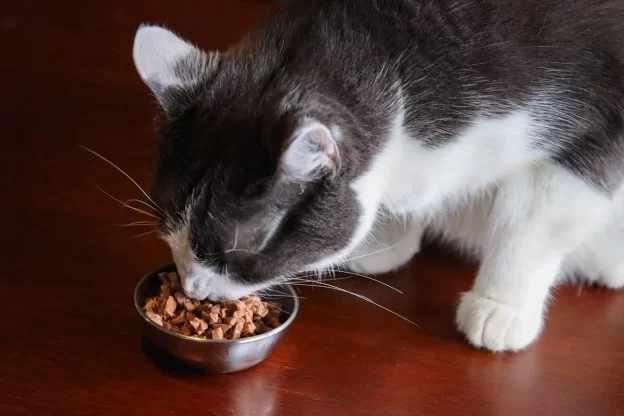- Understanding Cat Weight Management
- Key Nutrition Principles for Weight Loss in Cats
- Homemade Cat Food Recipes for Weight Loss That Work
- Overcoming Challenges When Switching to Homemade Diets
- Professional Support and Resources for Cat Weight Loss
Understanding Cat Weight Management
Excess weight in cats can lead to a variety of health problems including diabetes, arthritis, and heart disease. Helping your cat lose weight safely requires a clear understanding of their dietary needs and daily energy expenditure. Unlike dogs, cats are obligate carnivores, meaning their diet must be rich in high-quality animal protein and low in carbohydrates to maintain optimal health. When considering homemade cat food recipes for weight loss, it is essential to balance calorie intake with nutrient density to ensure your cat remains healthy and energized throughout their weight loss journey.
Weight management is not just about reducing food quantity but also improving food quality. Tailoring a cat’s diet to include nutrient-rich, low-calorie homemade meals can effectively support gradual weight loss without compromising essential vitamins and minerals. Many cat owners find this approach more satisfying because they know exactly what their pet is eating, and it allows for customization according to the cat’s preferences and health status.
Key Nutrition Principles for Weight Loss in Cats
When preparing homemade cat food recipes for weight loss, consider these vital nutritional factors to create a balanced meal plan:
1. High Protein, Low Carbohydrate Content
Cats thrive on animal protein, which helps maintain lean muscle mass while reducing fat stores. Opt for lean meats like chicken breast, turkey, or fish. Avoid fillers like grains or starchy vegetables that add unnecessary calories and can promote weight gain.
2. Controlled Portion Sizes and Caloric Intake
Weight loss depends on creating a calorie deficit, so measuring portions carefully is critical. Use your veterinarian’s recommendations or consult Hidden Brook Veterinary to determine your cat’s ideal daily calorie needs based on weight, age, and activity level.
3. Inclusion of Essential Nutrients
Cats require specific nutrients such as taurine, arginine, and certain fatty acids that are naturally found in animal products. When cooking at home, supplementation might be necessary to avoid deficiencies. Professional guidance is advisable to ensure balanced nutrition.
Homemade Cat Food Recipes for Weight Loss That Work
Here are two nutritious and tasty homemade cat food recipes designed for weight loss, which respect the cat’s carnivorous nature and promote healthy calorie control.
Recipe 1: Lean Chicken and Pumpkin Blend
This recipe combines lean chicken breast with pumpkin to add fiber, aiding digestion and fullness without adding many calories.
- 100 grams skinless, boneless chicken breast (boiled and shredded)
- 1 tablespoon pureed pumpkin (not pie filling)
- 1 teaspoon fish oil for essential fatty acids
- Supplement with taurine powder as recommended
Mix ingredients thoroughly and serve in portioned meals throughout the day.
Recipe 2: Turkey and Green Bean Medley
Green beans provide low-calorie fiber, helping your cat feel satiated. Turkey is a lean protein source perfect for weight management.
- 100 grams ground turkey (cooked thoroughly)
- 2 tablespoons finely chopped steamed green beans
- 1 teaspoon olive oil
- Optional taurine supplement
Combine well and serve in small, frequent meals to avoid hunger-driven begging or overeating.
Overcoming Challenges When Switching to Homemade Diets
Transitioning your cat to homemade food for weight loss can present difficulties such as picky eating habits or nutritional balancing. Cats can be notoriously selective, so introducing new foods gradually is essential. Mixing homemade recipes with a portion of their usual diet initially can ease the transition.
Another challenge lies in ensuring that the homemade food meets all of your cat’s nutritional requirements. Deficiencies can develop without careful planning. To avoid this, it’s highly recommended to consult veterinary nutrition experts. Hidden Brook Veterinary offers tailored advice and can provide supplements or commercial products that complement homemade diets perfectly.
Professional Support and Resources for Cat Weight Loss
Weight loss in cats requires patience, observation, and sometimes expert intervention. Veterinary professionals can help track progress, adjust diet plans, and provide medical oversight. At Hidden Brook Veterinary, you can access services including nutritional counseling, customized meal planning, and weight monitoring tools.
Real success stories include cats like Luna, a five-year-old feline who struggled with obesity. Her owner switched her to a homemade diet with guidance from Hidden Brook Veterinary and saw significant improvement in her energy and weight after just three months. Luna’s story shows that with the right recipes and professional support, homemade cat food recipes for weight loss can lead to lasting health benefits.
Ultimately, feeding your cat homemade meals for weight loss is a rewarding commitment that enhances their quality of life. When done thoughtfully, it supports their health and keeps their taste buds satisfied, making the journey to a healthier weight enjoyable for both you and your furry friend.











